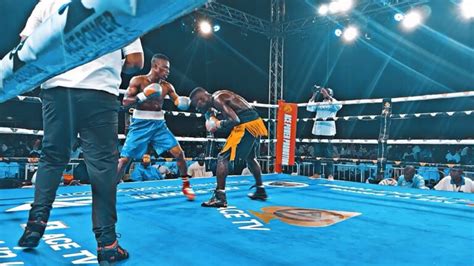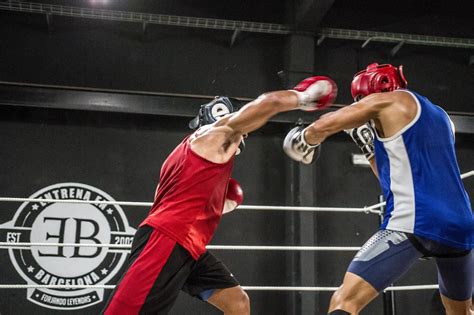Learn essential boxing footwork techniques, agility drills, balance tips, and shadow boxing practices to enhance your skills and track your improvement effectively.How To Improve Your Footwork In Boxing
Boxing is an intricate sport where strategy and agility are as essential as strength and power. At the heart of a boxer’s prowess lies effective footwork, the foundation upon which exceptional skills are built. Whether you are a novice stepping into the ring for the first time or an experienced fighter refining your techniques, honing your footwork can significantly elevate your performance. In this article, we’ll explore the fundamentals of boxing footwork, delve into agility drills to enhance your movements, and emphasize the vital role of balance in maximizing your agility. Additionally, we’ll share practical tips on shadow boxing, tracking your progress, and answering frequently asked questions. Get ready to step up your game and dance around the ring with confidence and precision!
Understanding The Basics Of Boxing Footwork Techniques
In boxing, mastering footwork is fundamental to developing effective offensive and defensive skills. Strong footwork techniques can significantly enhance your overall performance in the ring. Here are some of the essential techniques every boxer should practice:
- Stance: A solid boxing stance sets the foundation for good footwork. Keep your feet shoulder-width apart, with your dominant foot slightly back, allowing for better movement and balance.
- Step and Slide: Practicing the basic step-and-slide movement can help you become more agile. Move one foot and then the other, avoiding crossing your legs, which can lead to a loss of balance.
- Pivoting: Effective pivots can help you change angles quickly. Practice pivoting on your lead foot to create openings while maintaining a solid defensive position.
- Distance Management: Understanding the distance between you and your opponent is crucial. Practice moving in and out of range to create opportunities for strikes while staying out of danger.
- Practice Forward and Backward Movement: Moving both towards and away from your opponent enhances your ability to evade punches while setting up your own. Regular drills focusing on forward and backward movement will improve this skill.
By focusing on these core footwork techniques, you can create a strong foundation for your boxing skills. Always remember to incorporate these principles into your training sessions as you learn how to effectively maneuver in the ring.
How To Incorporate Agility Drills For Enhanced Footwork
Agility drills are essential for boxers looking to enhance their footwork. These drills not only improve speed and coordination but also allow a boxer to react quickly during a match. Here’s how to incorporate agility drills into your training routine:
| Drill Name | Description | Benefits |
|---|---|---|
| Ladder Drills | Use an agility ladder laid flat on the ground. Perform various foot patterns, such as sideways shuffles and quick steps. | Increases foot speed and coordination. |
| Cone Drills | Set up cones in various patterns. Dash between them while practicing different movements: forward, backward, and sideways. | Improves change of direction and pace. |
| Mini Hurdles | Place mini hurdles in a straight line. Jump over them using quick, light feet. | Enhances explosive power and quickness. |
| Shadow Boxing with Footwork Focus | While shadow boxing, focus on your foot movements. Incorporate various agility drills and change directions. | Embeds agility into your fighting rhythm. |
To maximize the benefits of these agility drills, make them a regular part of your training regimen. Aim for at least two to three sessions per week, incorporating a mix of the drills mentioned above. Remember that consistent practice leads to significant improvements in your boxing footwork. Whether you are a beginner or an experienced boxer, understanding how to effectively use agility drills will set you apart in the ring.
The Role Of Balance In Improving Your Boxing Footwork
Balance is a crucial component of effective boxing footwork. Without proper balance, even the best footwork techniques can falter, leading to missed opportunities and potential vulnerabilities against your opponent. Here’s how mastering balance can enhance your boxing skills:
- Foundation For Stability: A solid stance provides the foundation needed for quick movements. Maintain a shoulder-width stance with your knees slightly bent. This will allow for swift transitions in any direction.
- Better Weight Distribution: Practicing balance helps you distribute your weight evenly between both feet. This enables faster and more controlled movements, allowing you to pivot, sidestep, and advance or retreat seamlessly.
- Improved Reaction Time: When balanced, you can react more swiftly to your opponent’s actions. This agility in response is essential in boxing, where split-second decisions can determine the outcome of a match.
- Enhanced Power and Force: Balance also plays a significant role in delivering powerful punches. By maintaining your balance while throwing strikes, you ensure your body weight is behind each punch, making it more impactful.
To enhance your balance, incorporate specific exercises into your training routine, such as single-leg stands, balance boards, or stability balls. These exercises not only improve your footwork but also contribute to your overall athletic performance in the ring.
Understanding the role of balance is essential for any boxer looking to improve their footwork. By focusing on balance as a foundational aspect, you can elevate your boxing skills and maximize your effectiveness in the ring.
Practice Shadow Boxing To Develop Effective Foot Movement
Shadow boxing is a vital exercise that helps boxers refine their footwork and overall movement in the ring. By practicing without a partner or opponent, you can focus on your techniques and improve your agility, balance, and coordination.
Here are some key reasons why shadow boxing is essential for developing effective foot movement:
To get the most out of your shadow boxing sessions, consider incorporating the following elements:
By consistently practicing shadow boxing with a focus on your foot movement, you’ll cultivate the skills necessary to elevate your boxing performance. Incorporate this technique into your training routine to truly understand how to optimize your footwork and become a more agile fighter.
Evaluating Your Progress: Ways To Track Footwork Improvement
Measuring progress in your boxing footwork is essential for understanding how to refine your skills and maintain motivation. Here are some effective methods to evaluate your footwork development:
By incorporating these techniques, you’ll have a clearer picture of how to enhance your footwork and continue evolving as a boxer. Consistent evaluation not only helps pinpoint your strengths and weaknesses but also reinforces your commitment to growth in the sport.
Frequently Asked Questions
Why is footwork important in boxing?
Footwork is crucial in boxing as it allows fighters to maintain balance, evade punches, and create effective angles for offense.
What are the basic footwork techniques every boxer should master?
Every boxer should master techniques such as the shuffle, pivot, and step-drag to enhance their movement and positioning in the ring.
How can shadowboxing help improve footwork?
Shadowboxing allows boxers to practice their footwork in combination with techniques, enhancing muscle memory and coordination without the distraction of a partner.
What drills can boxers use to practice footwork?
Boxers can use drills such as ladder drills, cone drills, and partner follow-the-leader exercises to develop speed, agility, and precision in their footwork.
How does body positioning relate to footwork in boxing?
Proper body positioning enhances footwork by allowing better weight distribution and balance, enabling quicker movements and effective defensive maneuvers.
What role does balance play in effective footwork?
Balance is essential in footwork as it allows boxers to stay grounded while moving, helping them to react quickly and maintain control during exchanges.
Can footwork be improved outside the ring?
Yes, footwork can be improved outside the ring through conditioning exercises, footwork drills, and practice on agility equipment like balance boards or resistance bands.









